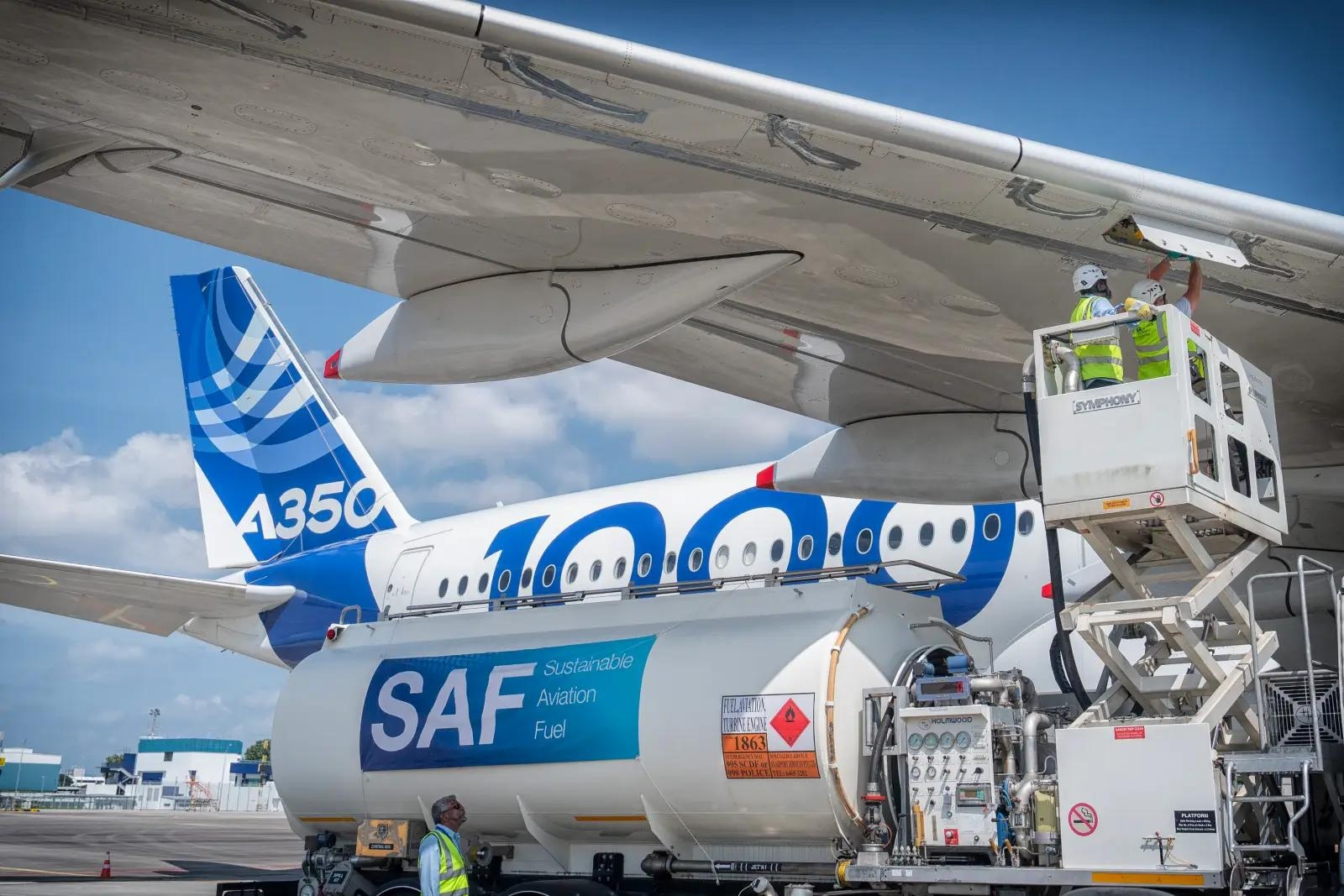AeroGenie — Your Intelligent Copilot.
Trending
Categories
Airbus Secures Order for 25 A350-1000 Jets from Riyadh Air

Airbus Secures Order for 25 A350-1000 Jets from Riyadh Air
Airbus SE has secured a substantial contract with Saudi Arabia’s Riyadh Air for 25 A350-1000 widebody aircraft, with an option to acquire an additional 25 jets. The agreement, finalized at the Paris Air Show, reinforces Airbus’s strong position in the global widebody market and is anticipated to contribute significantly to the company’s revenue as deliveries begin.
Expanding the A350’s Global Reach
The A350-1000, a key model within Airbus’s A350 family, is recognized for its long-range performance and superior fuel efficiency. This aircraft offers at least a 20% reduction in fuel consumption and CO₂ emissions compared to earlier generation models. Currently capable of operating on up to 50% Sustainable Aviation Fuel (SAF), Airbus aims to achieve full 100% SAF compatibility by 2030. These environmental and operational advantages have driven strong demand, with the A350 family amassing over 1,390 firm orders from more than 60 customers worldwide and 657 aircraft in active service as of May 2024.
Addressing Supply Chain and Market Dynamics
Despite the positive momentum, Airbus continues to face challenges related to supply chain management, which remain critical to ensuring the timely delivery of the A350-1000 jets. The lingering effects of the COVID-19 pandemic have introduced uncertainties in global logistics, compelling Airbus to focus on streamlining production and delivery processes to meet customer expectations.
The commercial aviation sector is witnessing a robust recovery, supported by increasing passenger traffic and a growing preference for modern, fuel-efficient aircraft. Airbus forecasts demand for approximately 43,420 new aircraft over the next twenty years, signaling sustained growth potential. In 2024, the company reported a 6% year-over-year increase in commercial aircraft revenue, driven by a 4.2% rise in deliveries. By May 2025, Airbus had delivered 243 commercial aircraft to 61 customers. Market analysts, including the Zacks Consensus Estimate, project annual revenue growth of 10.4% for Airbus in both 2025 and 2026.
Investor confidence has strengthened in response to these developments, though Airbus’s ability to effectively manage supply chain complexities will remain under close scrutiny as it fulfills major orders such as that from Riyadh Air.
Competitive Environment and Industry Outlook
Airbus’s recent contract win is likely to influence competitive dynamics within the large aircraft segment. Boeing continues to hold a significant global market share with its 737, 767, 777, and 787 families and is expected to achieve a 25.6% increase in sales in 2025. Embraer, the world’s third-largest commercial aircraft manufacturer, is expanding its E2 jet family and anticipates a 15.9% sales growth next year. Textron, known primarily for its business jets, also remains an important player in the commercial aviation industry.
As demand for new, efficient aircraft accelerates, leading manufacturers such as Airbus, Boeing, and Embraer are poised to intensify competition, each striving to capture a greater share of the recovering global aviation market.

Emirates Unveils Cabin Design for New Boeing 777X

Eighteen Years On, the Airbus A380 Remains Central to a $34 Billion Airline

How a boom in luxury airline seats is slowing down jet deliveries

Navitaire Outage Attributed to Planned Maintenance

DigiYatra Debuts Outside Aviation at India AI Impact Summit

Vietnam Orders Strengthen Boeing’s Commercial Outlook

Airbus Signals Uncertainty Over Future A400M Orders

JobsOhio Awards $2 Million Grant to Hartzell Propeller for Innovation Center

Collins Aerospace Tests Sidekick Autonomy Software on YFQ-42A for U.S. Air Force CCA Program

How the Airbus A350-1000 Compares to the Boeing 777
